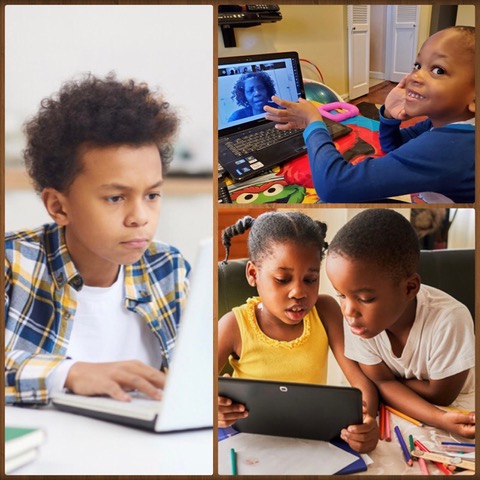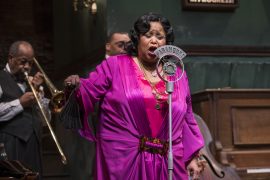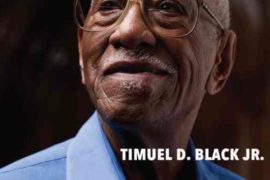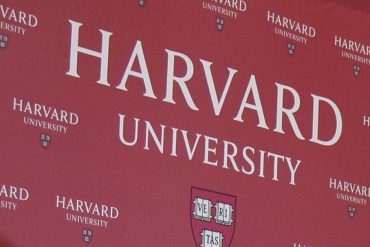With apologies to Charles Dickens, his best-of-times/worst-of-times comparison of London and Paris during the chaotic early 1800s does not hold a candle to what Black America is going through right now.
Just when we find ourselves in the driver’s seat — or at least upfront with one hand on the wheel – our precious cargo – the children who will determine the future of our people – are being turned away and cut loose to fall by the wayside.
Just when President Joe Biden, his bid for the White House rescued by the Miracle of South Carolina, begins appointing Black and pro-Black cabinet offices. Just when he begins signing executive orders that reverse the race-baiting orders signed by his unlamented predecessor. Just when things start looking up, we learn that millions of Black schoolchildren are free-falling down an educational pit from which they may never fully recover.
That pit is called “remote learning” . . . and it is not working. Now that the early, panicky weeks of the COVID-19 pandemic have turned into tedious months of closed schools and at-home computer screen frustration, the data could not be more clear … or more frightening.
Black students and educators are between a rock and a hard place, especially in large urban school systems that serve tens of thousands of low-income families and have remained entirely remote since March. Public schools in Washington. D.C., with a 59% Black enrollment, is testing four months behind in math and one month behind in reading. Virtually no second grader started this school year reading at grade level.
Falling Further Behind
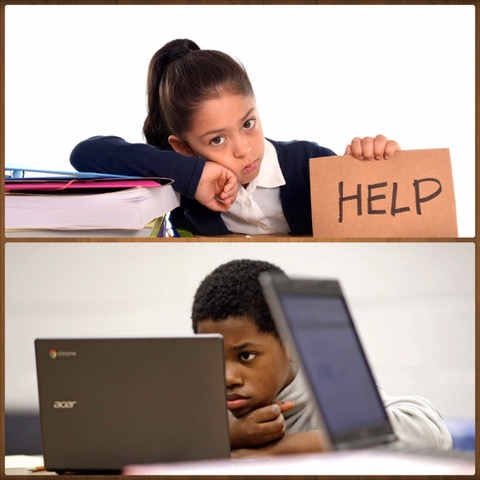
Abby Goodnough in the New York Times reports one difficulty is that, while kids generally listen to their grandparents, older caregivers are often overwhelmed and uncomfortable with technology and can provide limited oversight and support. Then there’s the lack of wire or Wi-Fi connectivity in so many apartments, especially public housing with its ubiquitous cinderblock walls.
Laura Meckler and Hannah Natanson of the Washington Post report on a McKinsey & Co estimate that the shift to remote is setting white students back by one to three months and Black students back three to five months. John King Jr., president of the Education Trust, worries that “We should be very concerned about the risk of a lost generation of students.” Lost? How else to describe the thousands of kids who, for one reason or another, are AWOL day-after-day from their “remote” classes. Research finds children in high poverty districts missed an average of about 12 days of remote classroom time this past spring compared to eight days at low poverty schools.
As for the very young, Chicago Public Schools reported enrollment among Black pre-kindergarteners had dropped by 44% and nearly 30% for Hispanics, both far larger percentages than for whites and Asians. As for teenagers, we know that applications for federal student aid were down 16% this fall as were submissions to the Common Application, a portal used by hundreds of college aspirants. The Healio.com website reports that the number of Blacks in medical school, previously an upward trend has been reduced due to the Coronavirus.
Getting Personal

My take on this unfolding disaster is not without self-interest. As a Black businessman, as a lifelong advocate of Affirmative Action, as an advisory board member of Chicago’s Urban Prep network of charter schools for young Black men, I am deeply concerned about COVID-19’s impact on the employability and career chances of Black students. How will this setback impact the potential of African Americans to begin careers as engineers, architects, estimators, and skilled tradesmen? Will opportunities we fought so hard to win in my industry be wiped out in a toxic cloud of educational failure due to — what? — anti-viral precautions?
What is to be done?
For one thing, how about organizing a nationwide effort to provide high-intensity tutoring and summer school programs for students most impacted by the “remote learning” fiasco? Right away such an undertaking will be met with a chorus of “Who’s going to pay for that?” After all, it would cost tens of billions of dollars to reach all students who will need remediation at a time when school districts are already struggling for basic needs. The McKinsey study estimates it would cost $42 billion @ $1,600 per student for vacation academies over summer break to serve small groups.
Here’s where we need to play our Best of Times card and remind the new powers-that-be in Washington how they got there. Besides the Miracle of South Carolina, in which a flailing Biden candidacy in the primary was resuscitated by Rep. James Clyburn and his Afro-Democratic legions, there were the follow-up twin victories in the Georgia U.S. Senate runoffs. Those victories give the Biden presidency a narrow Senate majority and, presumably, a flock of key
But let’s not wait for summer schools. Right away we need the Biden Administration and Congressional Democrats to do something about “remote learning” so there will be more than a remote chance that key academic subjects are learned. For starters, the emerging economic stimulus program needs to include state-and-local education funding comparable to the “Warp Speed” program that boosted research and development of anti-virus vaccines.
At the local level, some of these federal resources should be used to have teachers spend one day each week contacting students they are most worried about and working with community organizations to provide tutoring and other supports. Last summer a Milwaukee elementary school held an online tutoring program pairing teachers and college students, many of them Black, with 30 mostly Black children for up to 4 hours of one-on-one video instruction each day. They made 2½ months progress in one month. Additionally, school staff needs to visit homes, deliver supplies, troubleshoot software glitches, and generally touch base.
Besides outside help, Black families need to take virtual school seriously. The elephant in the room, according to education experts like Jack Schneider at U. Mass, is that “Children in a stable home situation, where parents have sufficient resources, will stay engaged in an online environment, whereas children whose temperament, socioeconomic status or home situation barred from the academic environment will fall further behind. The damage done to school children with scarce resources is likely to be irreparable. The best thing to do is to offer everyone a ‘do-over.’
Twindemic
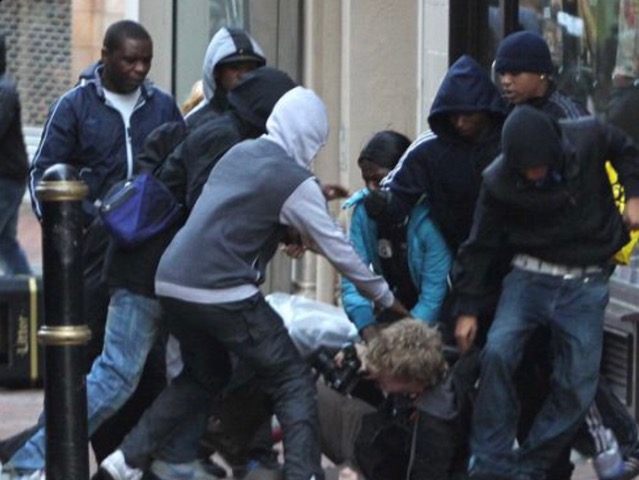
Joining Covid-19 is Black youth violence. You cannot rail against remote learning and ignore it. Whereas many have blamed the spike in crime on the virus, emboldened criminals, gun proliferation and a change in policing appear to be a primary cause that Black murder has increased by 95% in Milwaukee. 55 children were killed in Chicago in 2020. 18 were murdered in Chicago on May 31. Police interaction has changed. Heather Mac Donald (Wall Street Journal) reports a Chicago Detective “Every day you have to decide to get out of your patrol car and do something or do nothing. Car jacking’s already up 135% in Chicago in 2020 and spilling into the suburbs. In Chicago proper, there have there been 144 carjacking’s through January 31, with 144 guns recovered. The murder of George Floyd and calls for “defunding the police have led to a ‘cop conundrum.”
Black citizens need the assurance of police protection, while police are taking a hands-off approach. One sad example – CPD arrested a Black 14-year-old. responsible for much of the carjacking in the 8th ward. The teen was on electronic monitoring at the time of his arrest! One may ask why to bring up this in a “best of times/ worst of times” essay. You cannot talk of addressing Black educational needs, without recognizing the treacherous environment Black youngsters must navigate.
The Way Forward

So we find ourselves at a crossroads. Black Business would like to employ, train and mentor young professionals in construction, finance, insurance, and related areas. Yet we see the supply of prepared candidates is being threatened. Yet these are also the “best of times,” as Dickens might describe if only we approach the problem with wisdom and end quickly the foolishness of the past 4 years.
The table is set. Recently President Biden chose as his Secretary of Labor Boston Mayor Martin ”Marty” Walsh, a former leader of the Boston Building and Construction Trades Council, an umbrella group for unions. At last here’s a key presidential advisor with intimate knowledge of the issues we’ve been working on for decades. When we started with our Coalition for United Community Action back in the 1960s, Black contractors and tradesmen had to force a shutdown of publicly-funded construction sites across Chicago just to get the attention of local leaders. Now we have a voice in the Oval Office.
Now’s the time to press our Senators and Black Congressmen, as well as our personal relationships within the Biden administration, to advance our positions. The U.S. Small Business Administration has still-relevant yet underutilized programs which I advanced, with others, back in the day. Locally I am calling on Charles Smith, Chairman of Chicago’s Business Leadership Council; Chairman Emeritus Jim Reynolds; Tim King, CEO of Urban Prep; and Gary Slutkin, of Cure Violence, to develop proposals to help students up and out of the remote learning pit.
The need is now. The time is right. Black businesses are facing a brain drain, unable to engage educable candidates to take the good-paying but highly technical positions we have. We need resources directed to Black education over the next 12 months, not the next federal budget cycle. Educators and business leaders with personal connections should seize on the new Administration’s encouraging openers and urge them to act, and act quickly, on our proposals.
To that end let Charles Dickens’ opener from A Tale of Two Cities be our closer: “It was the best of times, it was the worst of times, it was the age of wisdom, it was the age of foolishness, it was the epoch of belief, it was the epoch of incredulity, it was the season of light, it was the season of darkness, it was the spring of hope, it was the winter of despair.”
Paul King, Jr. is a construction consultant and longtime member of Chicago’s Business Leadership Council.


